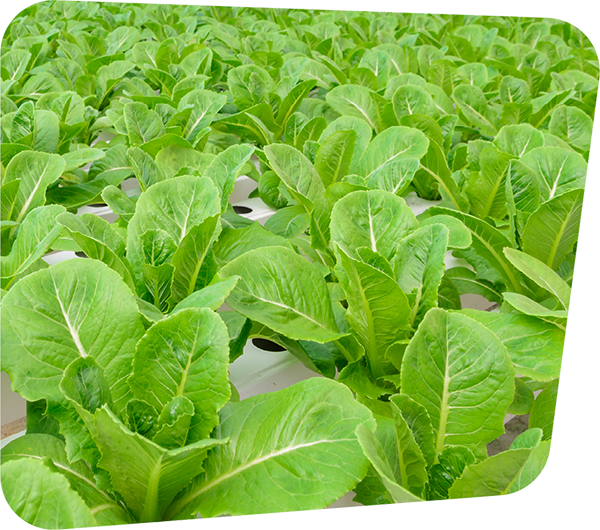What do lettuce, peppers, and watermelon have in common? All three can be grown hydroponically
 In recent years, hydroponic agriculture has become increasingly popular. This soilless growing method controls the growing plant’s water environment. Hydroponics can cultivate a variety of vegetables, including lettuce, coriander, bok choy, kale, and others. In addition, various types of cabbage, pepper, tomato, cucumber, and even watermelon and pumpkin can be grown using this technique. Hydroponic agriculture is one of the most innovative and cost-effective solutions for growing plants, as it saves space and water.
In recent years, hydroponic agriculture has become increasingly popular. This soilless growing method controls the growing plant’s water environment. Hydroponics can cultivate a variety of vegetables, including lettuce, coriander, bok choy, kale, and others. In addition, various types of cabbage, pepper, tomato, cucumber, and even watermelon and pumpkin can be grown using this technique. Hydroponic agriculture is one of the most innovative and cost-effective solutions for growing plants, as it saves space and water.
Hydroponic agriculture offers numerous advantages over traditional soil-based agriculture. Hydroponics are highly water efficient, as they consume less water due to the water’s circulation within the system. In addition, the systems can be placed vertically or horizontally, thus resourcefully utilizing the area designated for cultivation. Therefore, the system is ideal for urban agriculture or areas with limited land. Moreover, other advantages include reducing the growing cycle, year-round production under controlled conditions, reduced use of pesticides, and the ability to monitor the plants’ nutrient levels more precisely.
According to UN data, global food consumption will increase by 70% by 2050, while land availability for agriculture will decrease by 13%. This makes the hydroponic environment an ideal alternative for crops that grow in soil. Today, most of the world’s agriculture is traditional, based on extensive irrigation and fertilization. Excessive and inefficient use of water and fertilizer leads to soil salinization and further exacerbates the growing shortage of land suitable for agriculture.
Aiming to save water and preserve the planet, Haifa Group, a leader in plant nutrition, endeavors to create technologies and solutions for plant nutrition that reduce the use of various resources and increase the number of crops per unit area. The Group conducts many experiments at its Innovation and Development Center at Atlit Aharonson Farm. As part of the experiments, leafy crops and vegetables of various types are tested on a bed of water without soil.
Hydroponic crops make it possible to take agriculture one step further and grow vegetables even in closed and fully controlled growing environments. Since the available space for growing produce is decreasing, this growing method is idyllic since it enables hydroponic tiers, maximizing the use of the vertical space designated for agricultural growth.
Learn about Haifa's solutions for hydroponic systems
Optimize Nutrigation™ in recirculated hydroponic systems with the NutriNet™ Reci tool
Educating the future agricultural generation
In addition to the research conducted at the Innovation and Development Center, the Group has been collaborating with the Dimona Environmental and Agricultural Sciences Farm for the past two years to teach science and technology to students from kindergarten to high school in the city. As part of the collaboration, the Plant Nutrition Studies Center was established with a hydroponic system, where the students conduct various experiments that examine the effects of biostimulants and various fertilizer compounds adapted to hydroponic crops on plant growth.
Yossi Sofer, Haifa Group Agronomist: Over many years, the Haifa Group has acquired extensive knowledge from Israel and around the globe in the various types of agriculture. We are happy to share this information with farmers in Israel and worldwide, especially with the younger generation. Our activity on the Dimona farm demonstrates how exposure to agriculture piques the curiosity of the younger generation and increases their interest in the various effects of the environment on our food.




